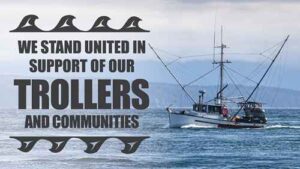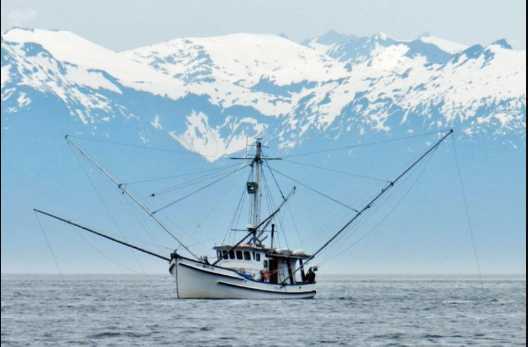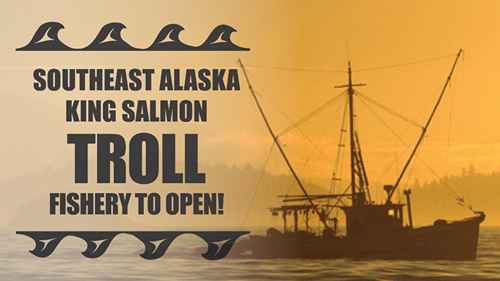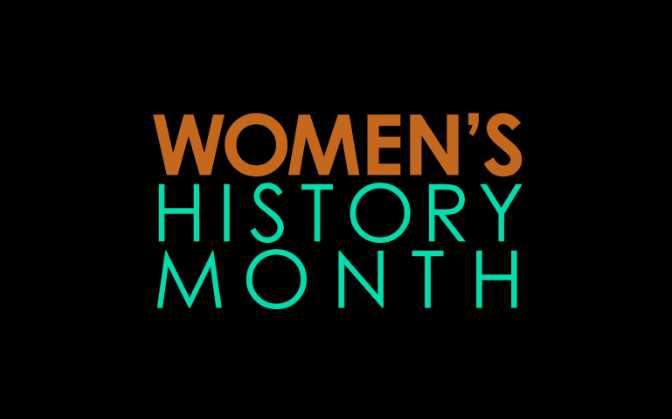|
The amicus brief was filed before the Ninth Circuit Court of Appeals (Ninth Circuit), which is considering an expedited appeal of the Western District of Washington’s order to close the Southeast Alaska king salmon fishery. The Tribal Amici are supporting the State of Alaska’s motion to stop the district court’s order from going into effect while the appeal is pending before the Ninth Circuit. The plaintiffs in this case, the Washington-based Wild Fish Conservancy (WFC), claim small boat fishing families are having an unsustainable impact on Chinook (king) salmon and are negatively impacting Southern Resident killer whales in Puget Sound. Southeast Alaska’s troll fleet and coastal communities face unprecedented uncertainty and risk due to the WFC’s misguided lawsuit against the National Oceanic and Atmospheric Administration (NOAA), National Marine Fisheries Service (NMFS) concerning its 2019 Biological Opinion (BiOp) along with the Incidental Take Permit for Southeast Alaska’s king salmon troll fishery. “This amicus brief puts our Indigenous voice on court record about the damage this shut down would cause our citizens, families and communities,” said Tlingit & Haida President Richard Chalyee Éesh Peterson. “The troll fishery is not the reason the Southern Resident killer whales are struggling. There are many environmental factors facing the Puget Sound because of habitat destruction and climate change that are affecting these whales. It is our hope that reason, science and traditional knowledge will prevail in the courts. King salmon do not only support the economies of our region, but are also an icon of our food sovereignty. The Wild Fish Conservancy’s claims are a direct attack on our food security and way of life.” If the Ninth Circuit upholds the Western District of Washington’s order, the impacts from the order, which affects no other commercial fishery or sport fishery except the sustainable hook-and-line troll fishery, include harm to our region’s fishing fleet, seafood processors, and the maritime and seafood support sectors. The amicus brief filing comes just one week after Tlingit & Haida and 15 Southeast Alaska tribes issued a joint letter calling for NOAA to take three specific actions:
These united efforts by tribal entities are incredibly important and timely, considering the Wild Fish Conservancy is now planning to ask the federal government to list several Alaska king salmon stocks under the Endangered Species Act, after notifying the State of Alaska last month. This Endangered Species listing could impact king salmon fisheries in Southeast Alaska, Southwest Alaska, and the Cook Inlet outside of Anchorage. “This really is an all-hands on deck situation to protect our Southeast Alaska trollers and the economic well-being of our communities,” said President Peterson. “Trolling is a longstanding, sustainable way of life. There are nearly 600 commercial power and hand troll permits held by tribal citizens.” Trolling is a well-managed hook and line fishery, that is very different than trawl fishing which is a non-selective method of fishing that disrupts the ocean floor by dragging a massive net while causing significant harm to marine ecosystems. With trolling, one fish is caught at a time on a hook and line, a method that is derived from the Tlingit and Haida traditional practices of trolling for salmon from canoes. The care these fish are treated with makes them prized by the markets and that economic value translates directly to the region’s ability to support 1,500 trollers. The Chinook harvest is estimated to make up 44% of the income of trollers and the troll fleet has a total economic impact of approximately $85 million to the Southeast Alaska economy. Southeast Alaska’s tribes and ANCSA corporations, the Alaska Congressional Delegation, State of Alaska, and many local municipalities and communities stand in support of Southeast Alaska trollers. Over the last ten days, more than 500 people have signed on to Tlingit & Haida’s statement in support of the sustainable Alaska hook and line fishing industry, trollers, their families, and communities. For those interested in signing on to support, go to: www.tinyurl.com/SupportSoutheastTrollers. We cannot let the Wild Fish Conservancy’s lawsuits distract us from the peer-reviewed science and traditional knowledge that have stewarded the resources of this region since time immemorial. Habitat loss and degradation from dams, pollution and other heavy industrialization have a far greater impact on prey availability than our small boat fishing families. Southeast Alaska tribes are united in support of our trollers and the sustainable management of salmon fisheries. |
|
|
[content id=”79272″]







